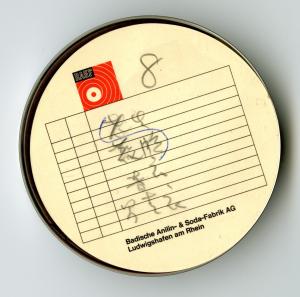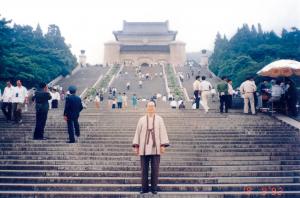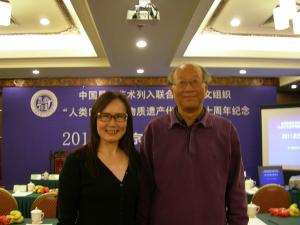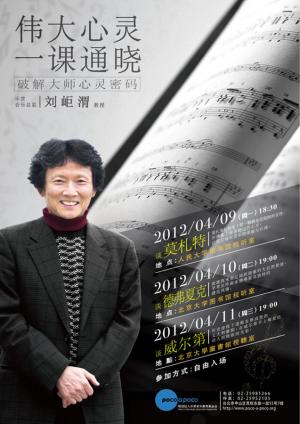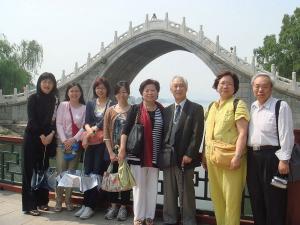京
自古帝皇州 郁郁蔥蔥佳氣浮
四百年來成一夢 堪愁 晉代衣冠成古丘
繞水恣行游 上盡層樓更上樓
往事悠悠君莫問 回頭 欄外長江空白流
「京」就是詞呼所描述的南京。首段在聲音上用了英國號凡的低鳴,木琴的木聱,加上大提琴泛音樂虛幻,帶出戰場過後人物全非,鬼哭人怨的「悲愁」。接著,人聲以「京」腔朗誦首段的詞,配以大提琴和英國號彷彿中國笙一樣的合聲。
最後人聲再轉以聲樂唱法與音樂融合。隨著「詞」的正面,音樂亦走向一種情懷的抒發,雖然重用了首段的原素,但其感覺卻豁然開朗。像詞人,把自己獻在大自然當中。
"Jing" , is inspired by a poem of the "SONG" dynasty. The word Jing means the old Capital, Nanjing. The poem contains two paragraphs, the first is to be a dark sad, about the environments changes, from a prosperous to a declined moorland, the second is released expression of te polemist with his melt to the natural.In the first paragraph, we can firstly heard a low weep sound by the English horn, imitate the old bugle used in the wars, with the wooden sound of the marimba and the fantasy like harmonics of the cello, which created a deserted and desolated atmosphere.Then, the vocalist came into the music in speech like with the style of the "Chinese Opera" , like a ghost who was full of grudge. The cello and the English horn were joined together to produce a timbre like the Chinese "sheng" .Finally, as according to the poem, the music changed from a pessimistic mood to an optimistic mood. The vocalist changed from speech to sing (in the traditional opera style, and melt into the music for a relieving like expression. The elements in the first paragraph was recapped, but as the changes of the environment, the elements were no longer an effect of sadness, is a relieve.

